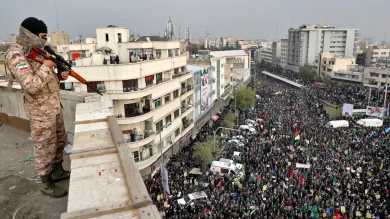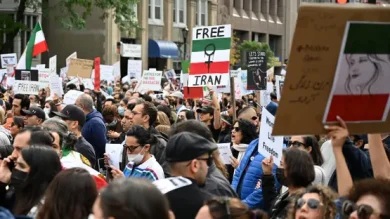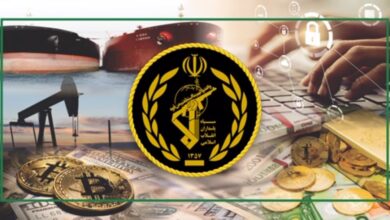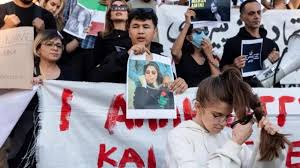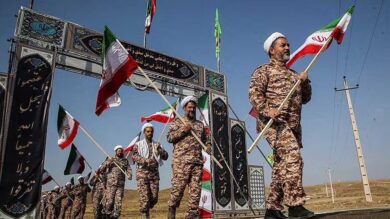Iran is home to one of the world’s most vibrant yet most threatened civil societies. From labor union organizers and environmentalists to women’s rights leaders and journalists, Iranian activists risk everything to challenge injustice. Despite decades of repression—particularly by the IRGC and security forces—Iranian human rights defenders persist.
Supporting them effectively is not just an act of solidarity but a moral imperative. This report explores who these activists are, the unique challenges they face, and concrete, ethical ways individuals and organizations worldwide can stand with them.
1️⃣ Who Are Iran’s Activists?
a. Diverse Faces of Resistance
• Women’s rights advocates (e.g., Nasrin Sotoudeh, Narges Mohammadi).
• Labor activists (e.g., Esmail Bakhshi and trade union leaders).
• Environmentalists (e.g., Niloufar Bayani and the Persian Wildlife Heritage Foundation).
• Journalists and independent media (e.g., journalists from IranWire, HRANA).
• Student activists (e.g., participants in university protests and sit-ins).
b. A Tradition of Dissent
• Highlight how activism in Iran has deep roots, from the 1979 revolution to today’s “Woman, Life, Freedom” movement.
• Discuss the generational nature of resistance, with young people leading current protests and older generations offering support.
2️⃣ Challenges and Risks They Face
a. Repression and Surveillance
• Arbitrary arrests and “disappearance” of activists.
• Harsh prison sentences, including torture and solitary confinement.
• Digital surveillance by the IRGC’s cyber units and state monitoring of online activity.
b. Economic and Social Punishment
• Loss of jobs, revocation of professional licenses, and freezing of bank accounts.
• Family members face intimidation or are held hostage as leverage.
c. Digital Threats
• Hacking of phones, phishing attacks on email and social media, state-sponsored disinformation campaigns.
3️⃣ Ethical Principles of Support
a. Center Iranian Voices
• Avoid speaking over or “rescuing” Iranian activists.
• Elevate their voices, not overshadow them.
b. “Do No Harm”
• Ensure that well-meaning support does not endanger activists (e.g., sharing sensitive info without permission, organizing risky events without security).
c. Long-Term Engagement
• Solidarity is not just about viral posts—it’s about sustained advocacy and amplifying Iranian-led initiatives.
4️⃣ How Individuals Can Help
a. Amplify Their Voices
• Share updates from reliable Iranian sources (e.g., HRANA, IranWire).
• Use your platforms (social media, blogs, local news outlets) to amplify real stories.
b. Join Campaigns and Petitions
• Participate in global campaigns for the release of prisoners of conscience (e.g., #FreeNasrin, #FreeNarges).
• Support letter-writing campaigns to governments and embassies.
c. Attend and Organize Events
• Join protests, vigils, or teach-ins in your community.
• Host art exhibits, film screenings, or cultural events highlighting Iranian voices.
5️⃣ How Organizations and Allies Can Help
a. Provide Legal and Humanitarian Aid
• Fund or partner with organizations that offer legal defense for political prisoners.
• Support medical and mental health care for activists and their families.
b. Offer Digital Security Support
• Provide secure messaging tools (Signal, encrypted emails).
• Train activists in digital self-defense (how to spot phishing, use VPNs).
c. Create Safe Platforms
• Offer exiled Iranian activists secure speaking opportunities.
• Publish their essays or testimonies in reputable media outlets.
d. Economic and Relocation Assistance
• Fund emergency relocation for threatened activists.
• Offer scholarships or fellowships to activists forced into exile.
6️⃣ Examples of Effective Global Solidarity
a. The Power of International Pressure
• Nasrin Sotoudeh’s release (temporary) was aided by global outcry and human rights campaigns.
• EU Parliament resolutions have forced Iran to address abuses (at least rhetorically).
b. The Role of Iranian Diaspora
• Diaspora communities have sustained protests and built bridges to international advocacy.
7️⃣ What to Avoid
• Savior Complex: Center the voices and leadership of Iranians themselves.
• Tokenism: Avoid one-off gestures—commit to long-term engagement.
• Ignoring Intersectionality: Recognize the specific challenges faced by minorities (Kurds, Baluchis, Baháʼí, LGBTQ+).
8️⃣ The Role of Policymakers and Governments
a. Concrete Policy Steps
• Designate the IRGC as a terrorist organization (where it has not been done yet).
• Impose targeted sanctions on known human rights violators—not the Iranian people.
• Prioritize human rights in diplomatic dialogues.
b. Engage Iranian Civil Society
• Create channels for direct dialogue with exiled Iranian activists.
• Fund independent journalism and secure digital platforms.
9️⃣ Conclusion: The Power of Global Solidarity
Iran’s activists are the voice of a future that embraces dignity, justice, and freedom. Their struggle is not only for Iran—it’s for universal human rights.
Supporting them requires humility, ethical commitment, and consistency. In doing so, we don’t just amplify Iranian voices; we become part of a global movement for justice.
Join Our Newsletter!
Stay informed with the latest updates, news, and ways to take action in the fight for justice and global security. Sign up now to get updates delivered straight to your inbox!

